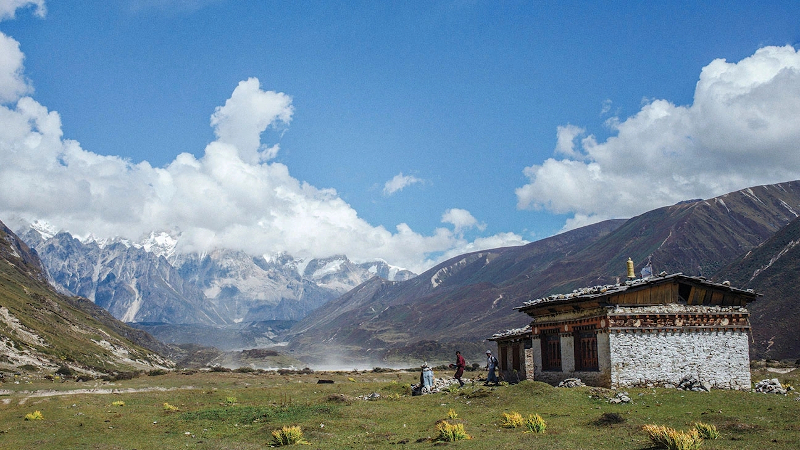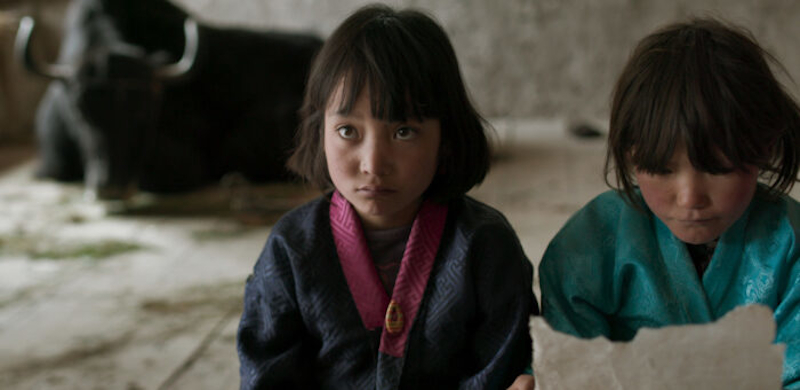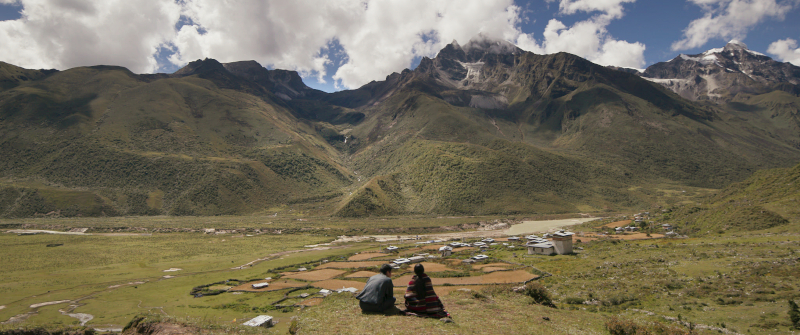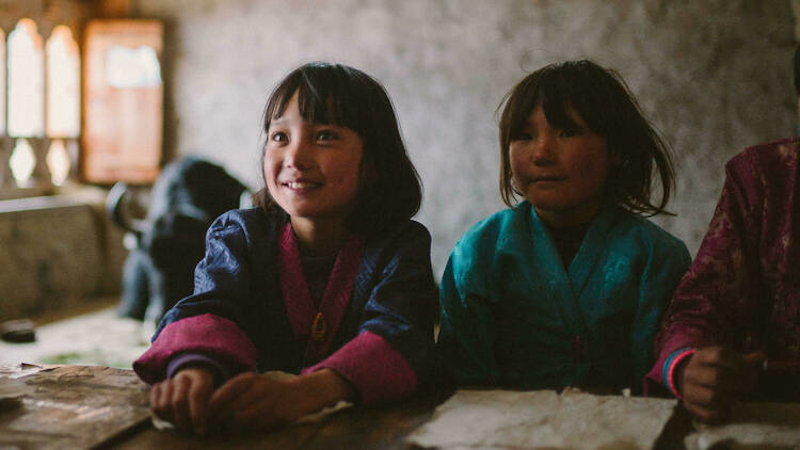Director – Pawo Choyning Dorji – 2022 – Bhutan – Cert. PG – 109m
****
A young man trapped in and frustrated with a teaching career is sent to a remote village, which turns out to be the best thing that’s ever happened to him – 2022 Oscar-nominated film for Best International Feature is out in UK cinemas on Friday, March 10th
Bhutan operates a system of National Service, and for Ugyen (Sherab Dorji) this means five years working in education. His heart was never in it, and he finds it something of an ordeal. His grandmother (Tsheri Zom) constantly berates him for not getting up early enough, while the State education system is less than impressed with his record. If he had his own way, he’d give it all up, take his guitar and go to Australia to try and set himself up as a singer. He’s still required to finish his five years first, though.
That’s bad enough, but then this die-in-the-wool urbanite addicted to his mobile phone and music listening on headphones finds that the system is so fed up with him, it sends him to an unexpected Autumn term teaching placement he’s in no position to refuse, much as he might wish to do so.

His new position is in the remote village of Lunana in the Himalayans which can only be accessed by several days uphill hiking. The plan is for his to go there and then leave before the harsh winter sets in. At the end of the journey, on which he’s been accompanied by a local wearing wellies named Michen (Ugyen Norbu Lhendup) who is highly amused by Ugyen’s expensive, city-purchased hiking boots which fail to keep out the water, he is greeted by the entire village population (56 people) who welcome him with open arms and impress on him their children’s hunger for a good, solid education.
The local kids, it turns out, are led by enthusiastic and winsome nine-year-old Pem Zam (Pem Zam, a real life Lunana villager) who does everything she can to help the incoming teacher. Not the easiest of tasks when the single-classroom school doesn’t even posses a blackboard and he’s forced to improvise by writing with charcoal on the wall.

The village population earns a meagre living from Yak-herding. Basic utilities such as electricity are lacking, and heating is provided in the villagers homes via the gathering and burning of Yak-dung piles. After getting himself covered in the stuff, Ugyen is informed that the trick is to collect the older, dried up dung piles as they’re considerably less messy than the fresh, new ones. Even so, the simple huts in which the locals live can get very cold and require insulation with sheets of paper to keep out the wind.
Shorn of his electronic comforts, Ugyen is forced to reconsider his existence and values. The scenery (the film was shot on location by Bhutanese cinematographer Jigme Tenzing) is breathtaking. Yak-herders, Ugyen discovers, have particular songs they sing to their animals. He is quite taken with Yak-herdess Saldon (Kelden Lham o Gurung) whose songs and voice make a particular impression upon him, and the pair ultimately spend hours sitting together on the mountainside. As you might intimate from the title, by way of encouragement, he is at one point presented with a venerable Yak to live in the school classroom.

The film picked up an Oscar nomination for Best International Feature in 2022, and it’s not hard to see why.
In keeping with its subject matter, the narrative plays out at a slow, languorous metre much like the early, several days’ hike upwards to the village. Just like such walks in real life, the slow pace appears daunting but then starts to deliver its own dividends, much in the same way that the isolated locations and the welcoming visitors start to win round the well-out-of-his-comfort-zone urbanite. Come expecting a slow, absorbing and thoroughly uplifting experience, and you won’t be disappointed. And bring some kids with you, if you can.
Lunana: a Yak in the Classroom is out in cinemas in the UK on Friday, March 10th. 2022 Oscar-nominated film for Best International Feature. Dzongkha language with English subtitles.
See also my review for Reform magazine.
Trailer:
